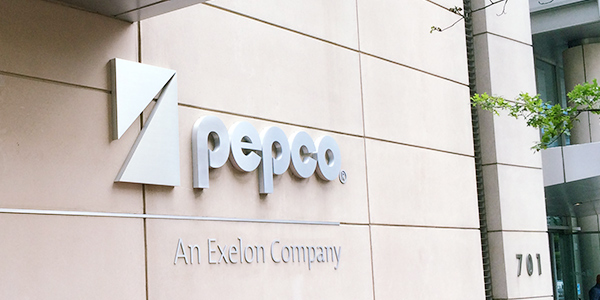By Christen Smith
FERC rejected transmission rate challenges on Monday against Potomac Electric Power Company (Pepco) and Delmarva Power & Light that challenged the accounting of each utility’s prepaid pension assets in its annual update.
Delaware Municipal Electric Corp. and the Southern Maryland Electric Cooperative in January questioned the prudency of the utilities’ combined $522.5 million in retirement contributions, suggesting the costs were voluntary and inappropriately included in their 2018 transmission base rates.
Both Pepco and Delmarva participate in a consolidated retirement fund with Atlantic City Electric Co. and Baltimore Gas & Electric. Parent company Exelon manages the account and determines annual contribution requirements for each utility, based on federal law and an internal policy that mandates at least a $300 million contribution until fully funded. Pepco and Delmarva raised transmission rate bases last year by $34.5 million and $12.4 million, respectively, to account for the prepaid pension assets.
SMECO said Exelon’s policy lacks transparency and its funding strategy remains unclear, noting the contributions go above and beyond federal mandates — arguments FERC rejected in its order Tuesday (ER09-1159). DEMEC’s complaints against Delmarva were likewise dismissed, just as they were in a near-identical challenge to the company’s 2016 annual update (ER09-1158).
“The commission did not say [in 2016] that an expenditure is imprudent if it exceeds the minimum funding requirements established by federal pension laws, or that there is a serious doubt about the prudence of an expenditure just because it is not required by federal pension laws,” FERC wrote. “SMECO’s argument runs contrary to the commission’s prudence standard because it suggests that Pepco was limited to a single correct act — making cash contributions that matched minimum funding obligations under federal law — rather than having discretion in its decision-making.”
DEMEC’s attempts to solicit refunds from Delmarva for accumulated deferred income tax (ADIT) associated with two retired transmission facilities also failed, since the utility paid the ADIT balance to the appropriate government authorities per IRS procedure.
FERC also said Delmarva acted appropriately when it used historical formula rate methodology to true-up rates between Jan. 1, 2018, and May 31, 2018, despite the fact the federal income tax rate had dropped from 35% to 21% that year.
Questions about the utility’s accounting of software-related expenses as miscellaneous intangible plant costs, which raised the rate base by $10,000, were also dismissed as unproblematic because the category accounts for licensing, an “intangible” element of software.





